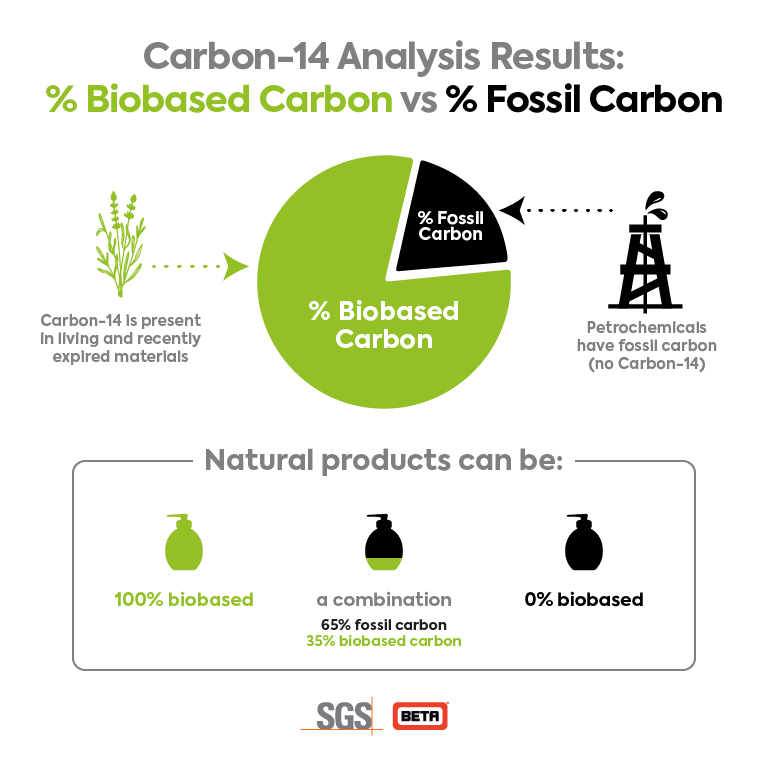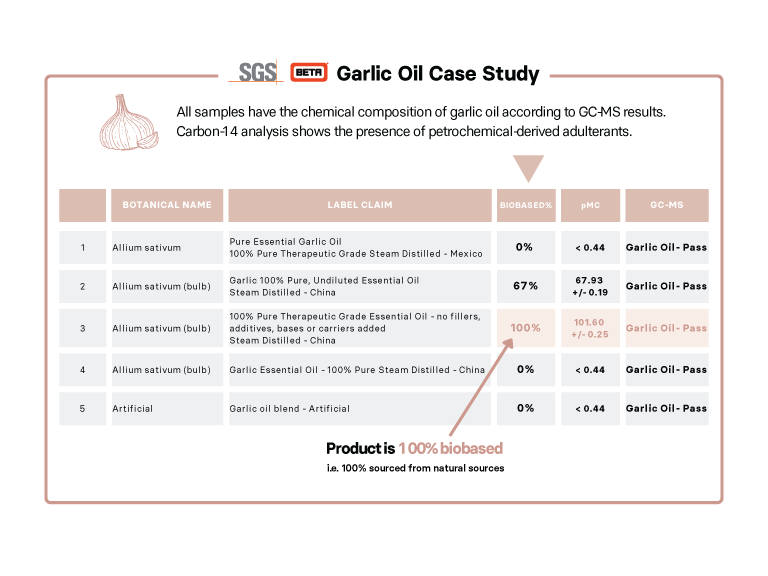Natural Ingredient Testing
Measuring % Biobased Carbon versus % Fossil Carbon in natural ingredients
A 100% Biobased Carbon result means that the material analyzed is all natural and has no evidence of synthetic adulterants or any petrochemical-derived substances.
Request PricingWhat does “biobased” mean?
“Biobased” means containing organic carbon of renewable origin like agricultural, plant, animal, fungi, microorganisms, marine, or forestry materials living in a natural environment in equilibrium with the atmosphere, according to the ASTM D6866 analytical standard.

Biobased carbon testing is done by Carbon-14 analysis. Products that are 100% biobased are 100% sourced from plants, animals or microbiological materials. Since carbon-14 is only present in living or recently expired material, Carbon-14 testing using Accelerator Mass Spectrometry (AMS) is the most effective method in confirming if there are petrochemical-derived synthetic adulterants in a product claiming to be 100% naturally sourced. Biomass has a known level of carbon-14, whereas petroleum-derived materials do not contain any. Depending on the composition of the tested material, the result reported will be between 0% and 100% biobased.

Measure the Biobased Content of Natural Ingredients by Carbon-14 Analysis
- Validate natural source claims
- Obtain data vital for raw materials quality control
- Identify adulterated or fraudulent “natural” flavor and fragrance products
Natural-sourced vs Synthetic Origin Reporting Standards
- ASTM D6866 – Results are reported as a fraction of the Total Organic Carbon (TOC) content of the material
- ISO 16620-2 – Reports results as a fraction of total organic carbon (TOC) or total carbon (TC)
These standards do not distinguish between different natural sources, only whether the material is biomass-derived or petrochemical-sourced or both. Read more on TOC vs TC
SGS Beta’s Testing Services for Natural Ingredients
- Standard Service – results are reported in 7 business days or less
- Priority Service – 4 business days or less
Products regularly accepted by SGS Beta for Carbon-14 analysis include curcumin, essential oils, flavors, and food & dietary supplements, among others.
Case Studies
These are our case studies showing why Carbon-14 analysis is necessary to detect petrochemical-derived adulteration.
- Garlic Oil
- Peppermint Oil
- Turmeric – with Eurofins and non-profit Global Curcumin Association
Read more on Carbon-14 Analysis vs Other Authenticity Testing Methods
Get in touch to learn more about natural vs synthetic testing.
Contact UsPage last updated: April 2025